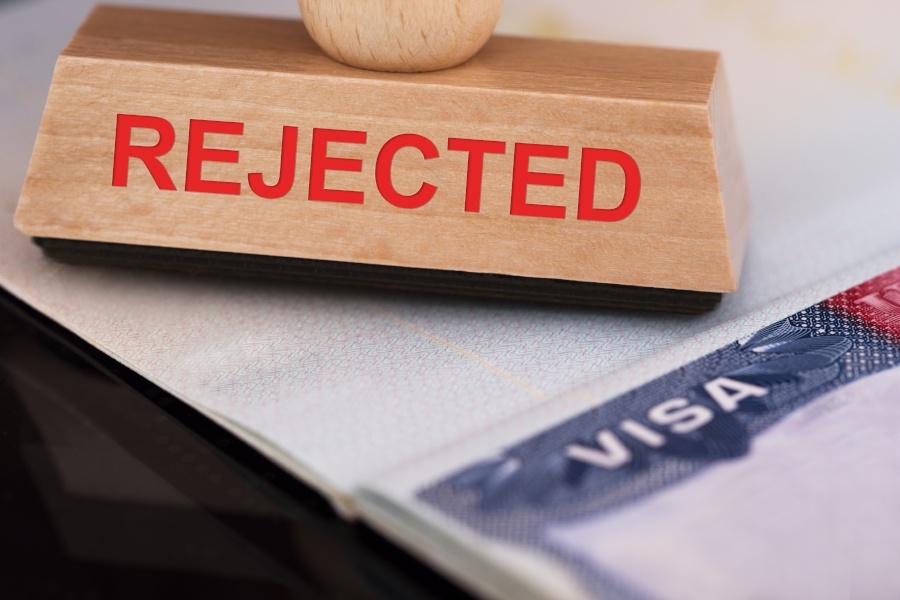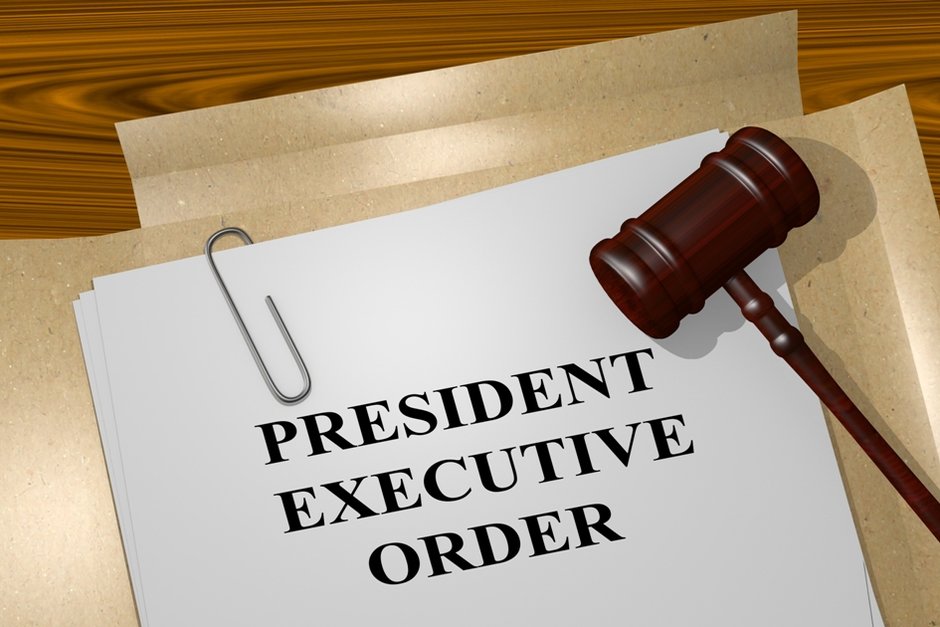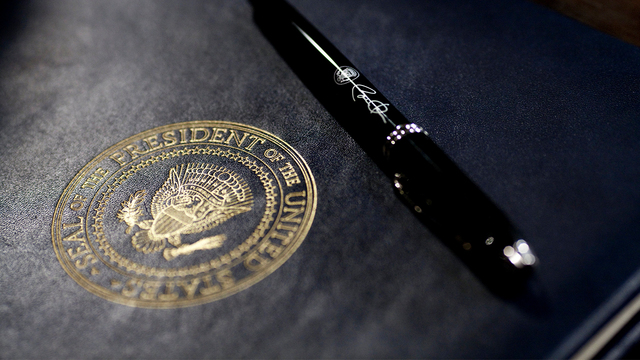 On January 31, 2020 President Trump issued a Presidential Proclamation expanding the Travel Ban enacted in 2018 to include certain foreign nationals of the following six countries: Burma (Myanmar), Eritrea, Kyrgyzstan, Nigeria, Sudan, and Tanzania.
On January 31, 2020 President Trump issued a Presidential Proclamation expanding the Travel Ban enacted in 2018 to include certain foreign nationals of the following six countries: Burma (Myanmar), Eritrea, Kyrgyzstan, Nigeria, Sudan, and Tanzania.
According to the Department of Homeland Security, these additions were based on an assessment from the Department of Homeland Security after reviewing updated security assessment criteria first established after the first iteration of the travel ban.
It should be noted that restrictions have only been placed on those seeking immigrant visas from the newly added countries. Individuals from these countries seeking nonimmigrant visas should not be restricted. The effective date of the expansion is February 21, 2020 at 12:01AM EST.
It should also be noted that the restrictions are for those seeking immigrant visas ABROAD. Those in the US, filing an adjustment application, should not face this restriction.
Updated List of Countries and Restrictions:
ERITREA: Suspends the entry of immigrants, except as Special Immigrants who have provided assistance to the U.S.government.
KYRGYZSTAN: Suspends the entry of immigrants, except Special Immigrants who have provided assistance to the U.S.government.
IRAN: Suspends the entry of immigrants and all nonimmigrants, except F (student), M (vocational student) and J(exchange visitor) visas, though they are subject to enhanced screening.
LYBYA: Suspends the entry of immigrants and temporary visitors on business or tourist visas (B-1/B-2).
MYANMAR: Suspends the entry of immigrants, except Special Immigrants who have provided assistance to the U.S.government.
NIGERIA: Suspends the entry of immigrants, except Special Immigrants who have provided assistance to the U.S.government.
NORTH KOREA: Suspends the entry of all immigrants and nonimmigrants.
SOMALIA: Suspends the entry of immigrants and requires enhanced screening of all nonimmigrants.
SUDAN: Suspends the entry of Diversity Visa immigrants
SYRIA: Suspends the entry of all immigrants and nonimmigrants.
TANZANIA: Suspends the entry of Diversity Visa immigrants
VENEZUELA: Suspends the entry of certain government officials and their family members on business or tourist visas(B-1/B-2).
YEMEN: Suspends the entry of immigrants and temporary visitors on business or tourist visas (B-1/B-2).
Scope:
Unless an exemption applies or the individual is eligible for a waiver, the travel restrictions apply to foreign nationals of the designated countries who:
(i) are outside the U.S. on the applicable effective date;
(ii) do not have a valid visa on the applicable effective date; and
(iii) do not qualify for a reinstated visa or other travel document that was revoked under Presidential Executive Order 13769.
Exemptions:
The travel restrictions in the proclamation do not apply to:
• lawful permanent residents;
• foreign nationals who are admitted to or paroled into the U.S. on or after the applicable effective date;
• foreign nationals who have a document other than a visa (e.g., transportation letter, boarding foil, advance parole document) valid on the applicable effective date or issued on any date thereafter;
• Dual nationals of a designated country who are traveling on a passport issued by a nondesignated country;
• Foreign nationals traveling on a diplomatic visas, NATO visas, C-2/U.N. visas, or G-1, G2, G-3, or G-4 visa; or
• Foreign nationals who have been granted asylum in the U.S., refugees who have been admitted to the U.S.; or individuals who have been granted withholding of removal, advance parole, or protection under the Convention Against Torture.
Waivers:
A waiver may be granted if a foreign national demonstrates to the consular officer’s or CBP official’s satisfaction that:
(a) Denying entry would cause the foreign national undue hardship;
(b) Entry would not pose a threat to the national security or public safety of the U.S.; and
(c) Entry would be in the national interest.
• Waivers may not be granted categorically but may be appropriate in the following situations:
- The foreign national has previously been admitted to the U.S. for a continuous period of work, study, or other long-term activity, is outside the U.S. on the applicable effective date, seeks to reenter the U.S. to resume that activity, and the denial of reentry would impair that activity;
- The foreign national has previously established significant contacts with the U.S. but is outside the U.S. on the applicable effective date for work, study, or other lawful activity; o The foreign national seeks to enter the U.S. for significant business or professional obligations and the denial of entry would impair those obligations;
- The foreign national seeks to enter the U.S. to visit or reside with a close family member (e.g., a spouse, child, or parent) who is a USC, LPR or lawful nonimmigrant, and the denial of entry would cause undue hardship;
- The foreign national is an infant, a young child or adoptee, an individual needing urgent medical care, or someone whose entry is otherwise justified by special circumstances;
- The foreign national can document that he or she has provided faithful and valuable service to the U.S. Government;
- The foreign national is traveling for purposes related to an international organization designated under the International Organizations Immunities Act (IOIA), traveling for purposes of conducting meetings or business with the U.S. Government, or traveling to conduct business on behalf of an international organization not designated under the IOIA;
- The foreign national is a Canadian permanent resident who applies for a visa at a location within Canada;
- The foreign national is traveling as a U.S. Government-sponsored exchange visitor; or
- The foreign national is traveling to the U.S. at the request of a U.S. Government department or agency, for legitimate law enforcement, foreign policy, or national security purposes.
For additional information regarding preparing and submitting a waiver on behalf of foreign nationals who are subject to Travel Ban please contact our office.
Please remember, as always, this blog does not offer legal advice. If you need legal advice, consult with a lawyer instead of a blog. Thank you.



 On January 31, 2020 President Trump issued a Presidential Proclamation expanding the Travel Ban enacted in 2018 to include certain foreign nationals of the following six countries: Burma (Myanmar), Eritrea, Kyrgyzstan, Nigeria, Sudan, and Tanzania.
On January 31, 2020 President Trump issued a Presidential Proclamation expanding the Travel Ban enacted in 2018 to include certain foreign nationals of the following six countries: Burma (Myanmar), Eritrea, Kyrgyzstan, Nigeria, Sudan, and Tanzania. On September 24, 2017, the President issued a new Executive Order (“EO”) entitled “Enhancing Vetting Capabilities and Processes for Detecting Attempted Entry into the United States by Terrorists or other Public Safety Threats”. This new EO builds upon the last order, which was only valid for 90 days. However, part of the old EO directed DHS to do a worldwide review to determine what additional information is needed from each foreign country to assess whether foreign nationals who seek to enter the United States pose a security or safety threat. DHS completed that review and gave the President a list of seven countries that had “inadequate” information sharing practices. The new EO implements certain types of restrictions against nationals of these seven countries (plus one additional country that the President felt posed security risks) in terms of their ability to get certain visas.
On September 24, 2017, the President issued a new Executive Order (“EO”) entitled “Enhancing Vetting Capabilities and Processes for Detecting Attempted Entry into the United States by Terrorists or other Public Safety Threats”. This new EO builds upon the last order, which was only valid for 90 days. However, part of the old EO directed DHS to do a worldwide review to determine what additional information is needed from each foreign country to assess whether foreign nationals who seek to enter the United States pose a security or safety threat. DHS completed that review and gave the President a list of seven countries that had “inadequate” information sharing practices. The new EO implements certain types of restrictions against nationals of these seven countries (plus one additional country that the President felt posed security risks) in terms of their ability to get certain visas. Today the Supreme Court agreed to hear an appeal from the US Government arguing that the injunction placed on the Executive Order that banned travel from 6 majority muslim countries was should be lifted. In agreeing to take the case, the Supreme Court also looked at whether the current temporary injunction should stay in effect. The Court determined that the injunction on the travel ban and the refugee ban should stay in effect insofar as it affected people who were similarly situated as the Plaintiff’s in the case – that is to say foreigners with familial or other ties to the US (through organizations or companies). However the Supreme Court lifted the injunction (allowing the travel ban to be put into place) for everyone else, that is to say those with NO such ties to the US. Why did the Court lift the ban in certain cases? Basically, the Court weighted the harm to persons affected by the travel ban and refugee ban with the interests of our Government as described by the current administration. The Court agreed with the lower Courts that the interests of the Plaintiff’s and those similarly situated to the Plaintiff’s, outweighed the interests of the Government. But for those with no ties to the US, the Court found that the interest of our Government outweighed the interests of those individuals.
Today the Supreme Court agreed to hear an appeal from the US Government arguing that the injunction placed on the Executive Order that banned travel from 6 majority muslim countries was should be lifted. In agreeing to take the case, the Supreme Court also looked at whether the current temporary injunction should stay in effect. The Court determined that the injunction on the travel ban and the refugee ban should stay in effect insofar as it affected people who were similarly situated as the Plaintiff’s in the case – that is to say foreigners with familial or other ties to the US (through organizations or companies). However the Supreme Court lifted the injunction (allowing the travel ban to be put into place) for everyone else, that is to say those with NO such ties to the US. Why did the Court lift the ban in certain cases? Basically, the Court weighted the harm to persons affected by the travel ban and refugee ban with the interests of our Government as described by the current administration. The Court agreed with the lower Courts that the interests of the Plaintiff’s and those similarly situated to the Plaintiff’s, outweighed the interests of the Government. But for those with no ties to the US, the Court found that the interest of our Government outweighed the interests of those individuals. The Transportation Safety Administration. last week, stated that certain electronics will NOT be allowed on board airplanes in carry-on luggage and must be checked on direct flights from certain airports to the US.
The Transportation Safety Administration. last week, stated that certain electronics will NOT be allowed on board airplanes in carry-on luggage and must be checked on direct flights from certain airports to the US. On Friday, January 27, 2017 President Trump signed an executive order on immigration restricting travel to the United States from citizens of seven countries – namely, Iraq, Iran, Syria, Yemen, Sudan, Somalia & Libya. The initial interpretation and implementation of this order led to confusion among U.S. border agents and others placed with admitting individuals to the United States. This included a period of time over the weekend when returning permanent residents (green card holders) were subject to the order, denying them admission to the United States. There are now lawsuits that have been filed and we are hopeful that there will be additional judicial review and clarification of this order in due course.
On Friday, January 27, 2017 President Trump signed an executive order on immigration restricting travel to the United States from citizens of seven countries – namely, Iraq, Iran, Syria, Yemen, Sudan, Somalia & Libya. The initial interpretation and implementation of this order led to confusion among U.S. border agents and others placed with admitting individuals to the United States. This included a period of time over the weekend when returning permanent residents (green card holders) were subject to the order, denying them admission to the United States. There are now lawsuits that have been filed and we are hopeful that there will be additional judicial review and clarification of this order in due course.